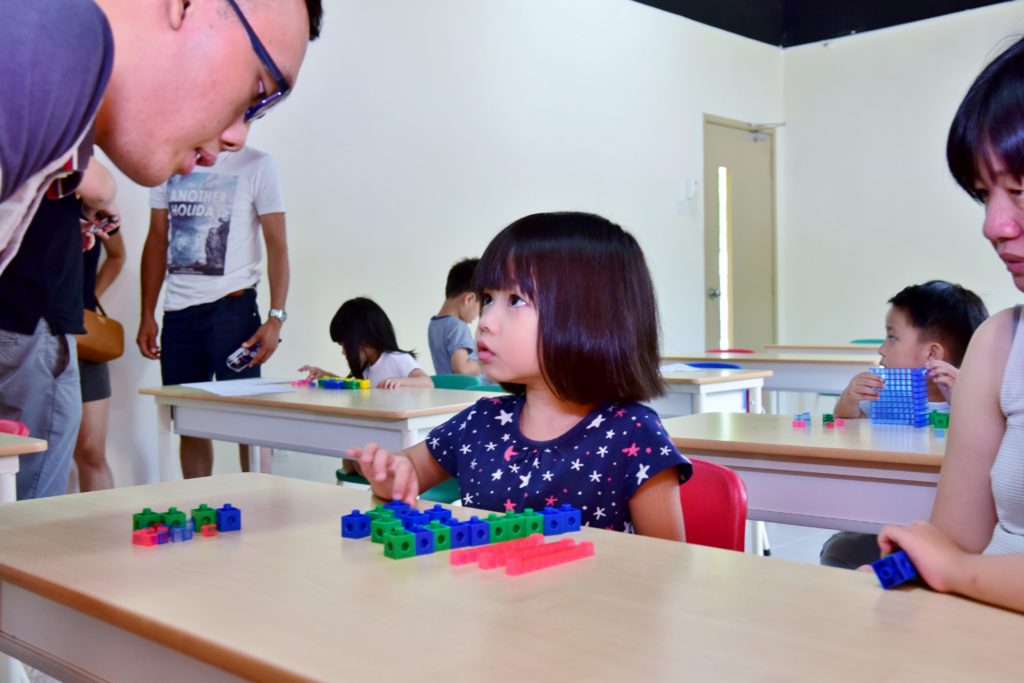Are you destined to be a ‘bad at math’ person? Can you fix this negative self-perception?

Zig Ziglar, the legendary sales master and motivator calls it “stinking thinking.” Like many other aspects of our life, thinking, “I am bad at math,” or “I’m allergic to algebra,” can be a self-fulfilling prophesy.
It’s not like the reverse is true. I am certainly not suggesting that, thinking “I am expert at math,” will make you one. Let’s say it is better for your desire to master this essential STEM subject by thinking, “I need to work harder at improving my math skills.”
And, according to many researchers, hard work is one of the keys. Americans have invested into studying why Asians, especially the Japanese and Koreans, are generally better in math. One of the findings is that when they (Japanese, Koreans, etc.) do badly at something, they respond by working harder at it. They also conclude that, “Persistence in the face of failure is very much part of the Asian tradition of self-improvement.”
So why are some people not working hard at improving their math? After all, it is a critical skill to earn a good living. More so with the advent of Industry 4.0.
The same question. Why do some people relish the compounding challenges of math and excel in the subject?
IT’S ALL IN THE MIND
It comes down to what, Carol Dweck, the eminent Professor of Psychology at the Stanford University, calls the ‘growth mindset.’ It is about believing that your intelligence is highly malleable and can be developed by hard work. This is closely tied to the findings of brain researchers about the plasticity of our brain. That our brains will make new connections as we learn. And change. For better or worse. The most important aspect of this finding is that; we are in charge of changing our brain. Not the other way round.
But, if we are not vigilant, we can, over time, develop a ‘fixed mindset.’ This state of mind stifles your ability to get out of a rut. Such as, the belief, “I am bad at math and will always be.”
Other researchers, such as Patricia Linehan of Purdue University report similar findings. Our learning abilities in a given subject is driven by our thought orientations. If we develop the ‘incremental orientation,’ we can continually improve our ability by studying and practicing.
Conversely, with an ‘entity orientation,’ we believe that we cannot get any better, no matter how hard we try. The salient point is; if we don’t believe we can improve, we will give up trying.
You may say, “I don’t buy it. If I have an entity orientation, how come I am good at this and this…?” Linehan has also found that we can have different orientations for different subjects. Your ability for working hard at picking up a subject and sustain the learning is influenced by your motivation for doing so.
Your motivation will be dependent on how important you view the subject is to you. Math is certainly important in all domains of our life.
THE FEEL GOOD FACTOR
The other part is your experience in pursuing the learning. Do you feel good? Do you find the pursuit enjoyable? Do you sense a threat to your self-esteem? These, plus a host of other questions will strengthen or dampen your resolve to master math.

The ‘experience’ part of the script is largely written by the teacher. Whether teaching children or adults, the teacher must be able to stimulate the students’ curiosity, make it interesting, fulfilling and safe to pursue the learning.
As far as crafting the ‘experience script’, Dr. John Mighton is one of the write men (pun intended) for the job. After having nearly failed his calculus in his first year at university, Dr. Mighton left studying Math for years. He became a playwright, but had to tutor students in Math to make ends meet. Overcoming his own ‘massive math anxiety’ John Mighton earned a Ph.D. in Mathematics, and is the founder of JUMP Math, a charitable organization dedicated to “enhancing the potential in children by encouraging an understanding and a love for math in students and educators.”
HOW TO INSPIRE AND ENABLE
Dr. Mighton’s interview with Scientific American provides enlightening insight on how to “inspire young problem-solvers and enable virtually all students to excel in math.” I will attempt to share the gist of his approach, for better clarity, in three focus areas.
METHOD
The key idea here is to teach through small manageable challenges and discovery activities. Make practices interesting and encourage more practice. Allow students to discover the answers for themselves. Provide immediate feedback. Intervene only with those who really need help.
The teacher should not explain too much but to enable the students through a series of questions. (The so called, ‘Socratic Method.’) The teacher must act as only a guide, to adjust the size of the challenges when they are too hard. Bonus questions should be used to spur those who are successful further.
It would be counterproductive if the teacher overwhelms the students with too much complexity in the proposition. Be watchful of that.
MINDSET
It is intrinsically important for students to embrace the growth mindset in order to do well in any domain. The idea is not to attribute any achievement purely to genetics or entitlement. The focus should be on the will and effort. It is important that teachers help students believe that they can get better, with practice.
With practice comes competence, which experts suggest, is the foundation for confidence. John Mighton believes that 98%-99% of students could do well if they have good instructions, coupled with the confidence that they can do well. Once a student decides, “I am never going to be good with math,” the brain stops working efficiently for this subject.
It would do well for the teacher to engage with the student’s sense of wonder. Allow them to explore possibilities. To stretch their abilities.
MOTIVATION
Kids love repetition and thinking forward, exploring possibilities with a sense of wonder. Teachers need to incorporate these traits in their motivational approach. Including for adult students. A sense of wonder is the engine for possibility thinking.
Teachers should encourage students to take small and simple risks, allowing them to experience success frequently. This is reinforced by immediate feedback. Recognition is one powerful form of motivation.
Students should be assessed on their efforts and not just their talent.

The fastest way to destroy excitement is to compare students’ performance with each other. While they thrive on “collective effervescence,” it will be a wet blanket to pit them against one another.
A good way to spur students who are successful with their challenge is to ‘award them’ bonus questions. It is a pragmatic form of recognition for their progress.
KEY TAKEAWAY
Students will not excel in math if they have a negative mindset about the subject. It is important for parents and teachers to remind kids that being good in math is not a genetic endowment. With practice and perseverance, anyone can excel in math.
For teachers, Professor Jo Boaler of Stanford University advises to make the problems enjoyable to work on. According to her, “students learn math best when they approach the subject as something they enjoy. Speed pressure, timed testing and blind memorization pose high hurdles in the pursuit of math.”
The altruistic Dr. John Mighton reminds teachers to help students pursue their expertise in math in small achievable steps. There is no stronger motivation to move forward than the experience of savoring success after each challenge.
I was at the Karpal Singh Penang Learning Centre for their first math workshop for kids on September 16th. I expected some numbers to be on the whiteboard. There were no numbers anywhere. All the kids were playing with blocks. Now I know why.
The Karpal Singh Penang Learning Centre (KSPLC) is one of the 6 STEM education centres in Penang. The others are PSC, Tech Dome, PSDC, PDL and @CAT Penang.